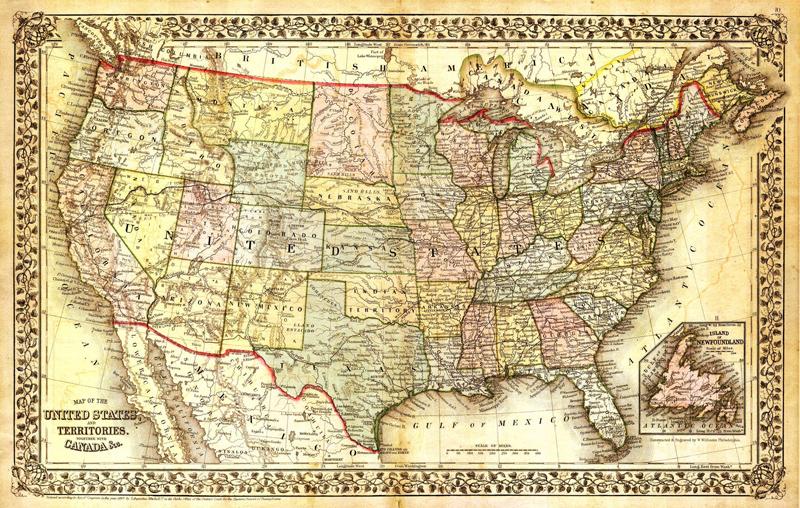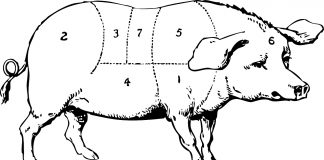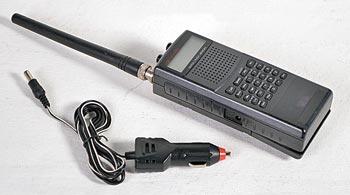 |
|
| Issue #18 • November/December, 1992 |
I’ve been getting a lot of telephone calls from Oregon lately. My article is late again and Dave Duffy, the fellow who publishes this magazine, keeps calling to ask me when I’m sending it up.
I don’t mind him asking when. I just mind when he asks what this month’s article is going to be about, because I haven’t got the slightest idea. That’s usually why I’m late.
O.E. MacDougal, Duffy’s poker playing friend, still lives and plays down here in California, and he’s been by a few times. Anyone who reads my articles knows he’s usually very helpful when I’m trying to write them, but this time it was apparent I was on my own.
In fact, he dropped by this morning and was sitting across the room from me, reading a magazine while I slouched at the computer waiting to be inspired.
I couldn’t think of anything, so I tried to bait him. “Who do you like for the World Series?”
He looked up and shrugged. “I’m not following baseball this season.”
He went back to reading.
That killed a baseball article.
“How do you feel about November’s presidential election?”
“It’ll be either Tweedledum or Tweedledee,” he said without elaborating.
“What do you think about the Soviet Union?”
He didn’t even look up. “It’s gone, John.”
“Oh, yeah.”
I went to my coffee pot. It was empty. Mac drinks more coffee than anyone I’ve ever known. I started another pot.
“Bobby Fischer’s going to play chess again,” I said.
He nodded.
The phone rang. I hoped it was a bill collector and not Duffy asking about his article. But it was Dave’s voice on the other end. It’s the curse of good credit.
He wanted to talk about the election.
“I know,” I said when he asked if I realized he was supporting the Libertarian candidate.
“That’s right,” I said when he said that from one election to the next nothing really changes.
“I am too,” I responded when he said he was disappointed with the entire political process.
I agreed that the electorate had to do something about it. “Not enough people vote,” I said.
Out of the corner of my eye I saw Mac look over his magazine at me and then he went back to reading.
“We should encourage more people to vote,” I added. “Yeah, whip your readers into a frenzy and get them out to vote.”
“Goodbye,” I said and hung up without either of us mentioning the article. I sighed the sigh of a reprieved man, then stared at the monitor and realized no article was coming out of me. This was going to be the second issue in a row without anything by me.
“Why?” Mac asked.
“Why what?”
“Why should more people vote?”
“Because it’s the way democracy works best,” I said.
He shrugged and started reading again.
“Don’t you think so?” I asked.
“I don’t know,” he replied. “It bothers me that most people don’t know what they’re voting for and now we want more of them to vote.”
I stared in his direction. He was reading again but he said, “Most people have no grasp of what the issues are,” he said.
I didn’t say anything.
“Very few people even know the names of either their Representative in Congress or the names of the United States Senators from their state.”
He looked at me in anticipation. I realized I didn’t know who they are.
“Gallegly is your Representative and Cranston is your Senator. Seymore is the other Senator.”
I smiled and made a note of it on the computer.
“It’s symptomatic of the problems in our society that most people know the name of the judge on The Peoples Court…” He hesitated.
“Judge Wopner,” I said showing him I wasn’t completely ignorant.
“…but, not one in ten knows who the Chief Justice of the Supreme Court is.” He hesitated again.
I didn’t say anything.
“I’m not sure we’ll benefit by having even more people voting. It would be different if they were voting and they were informed.”
He went back to his magazine.
“Um, who is the Chief Justice on the Supreme Court?” I asked.
“Justice William Rehnquist,” he replied but kept reading.
I made another note.
“Well, what would you do to change the electoral process for the better?” I asked.
He looked at me again. “First, I’d either make Election Day on April 15th or make taxes due on the first Tuesday following the first Monday in November.”
“That’s Election Day, right?”
He nodded. “Second, I’d make all the ballots blank if you don’t know who or what you’re voting for, you can’t vote.”
“Be serious,” I said.
“I am. I think people should have to know something before they cast a ballot. I’m not saying they have to have college degrees, or be rich, or have any particular beliefs. I’m just saying that when they start marking a ballot, they should have done some homework and find out who’s who and what’s what. They’re voting people who spend hundreds of billions of our dollars, start wars that cost us our lives, and in general are influencing the course of history. They should have to know something before they mark their ballot.”
“Well, it must be comforting to you that in the last twenty years, the percentage of eligible voters who actually vote has fallen,” I said.
“It’s an illusion.”
“It’s cold, hard math,” I said. “The percentages have fallen.”
“No, twenty years ago, we lowered the voting age by three years and enfranchised a bunch of people who don’t vote. People twenty-one and over still vote in roughly the numbers they always have, but those in the 18-20 year range are notorious for not voting and when they’re averaged in with the older people it makes it look like there’s been an across the board drop.”
“Oh,” was all I could muster.
“Is there anything else you’d change?”
“Yes. Several states, like Nevada, have the option of ‘none of the above’ on their ballots. Of course, the way it works now, if ‘none of the above’ wins, like it did in some district in Georgia in a primary this year, second place is the winner. But I think if ‘none of the above’ wins, a new election should be mandated. I don’t care if we’re talking the presidency or dog catcher.”
“What would we gain by that?”
“The electorate would have the choice of voting for other than Tweedledum and Tweedledee and if the major parties see enough of this ‘none of the above’, one or the other will have to listen up and become more responsive to our needs.”
I made a few more notes.
“Most people don’t even realize, when they vote in a presidential election, they’re not actually voting for a president or vice president.”
“We’re not?”
He looked at me just a little surprised himself. “No. You’re voting for a slate of electors who will vote for the President. You’re not voting for the President at all.”
“Are you kidding?”
“No. What do you think the electoral vote, being tracked on television during the election, means?”
He didn’t wait for my answer.
“Each state’s electoral vote represents a group of electors you are voting for who will vote for the President in December. It’s the vote of these electors in December that makes the presidential election official.
I stared at him for several seconds. I’d always known about the electoral vote, but I’d never really given thought to what it meant. “We don’t vote for the President?”
“No.”
“How many electors are there? And who are they?”
“The number of electors a state has is equal to that state’s total representation in Congress. The least populous states have at least one Representative and two Senators, so, states like Wyoming, North Dakota, and Vermont have three electoral votes. California, with 52 Representatives and two Senators, has 54 electors.”
“Big difference,” I said.
“It is, and if a candidate carries a plurality in a state, his slate of electors wins the state contest. If Bush wins California, his slate of electors will cast their 54 ballots for him and he’ll carry all of California’s electoral vote.
“Forty-nine states have the winner takes all approach. Maine splits its electoral vote in proportion to the popular vote, but in reality, an elector once elected, can vote for whomever he pleases as long as that person is 35 or older, is a natural born American citizen, and has been a resident in the U.S. for at least 14 years.”
“Anyone?”
“Electors are not bound by any Constitutional Articles or Amendments to vote for the candidate who won. That’s why, in the election of 1820, though James Monroe won every state and should have won every electoral vote, he didn’t. An elector from New Hampshire cast his vote for John Quincy Adams, Monroe’s opponent.”
“Why?”
“He said only one President, George Washington, should ever be accorded the honor of 100% of the electoral vote. So, he voted for Adams. Today, Washington is still the only President to win unanimously and he did it twice.”
“Wasn’t John Quincy Adams President at some time?”
“Yes. Ironically, he won the following election, in 1824, in an electoral contest where no one could win a majority in the electoral college and the decision was thrown to the House of Representatives for the second time in the nation’s history and Adams won the presidency there in a contest racked with scandal.
“What happened?”
“When the electoral votes were tallied, there were four men who had significant electoral votes; Andrew Jackson, John Quincy Adams, Henry Clay, and a man named William Crawford. But none had a majority. The Constitution, states that if no Presidential contender has a clear majority of electoral votes the names of not more than the three top finishers are to be submitted to the House, and Jackson’s, Adams’s, and Clay’s names were submitted. Jackson had garnered more popular vote than Adams and Clay combined and many thought he was going to win. But, when the election is tossed to the House, each state casts one vote and Henry Clay threw his support to Adams and Adams won.
Then, when Adams formed his cabinet, he named Clay Secretary of State.
Jackson’s supporters cried scandal and made it an issue for the next four years. In the election of 1828, Adams won one less electoral vote than he had in 1824 but Jackson won virtually all the rest and along with it, a landslide ride into the presidency.
“If that weren’t enough, four years later, Jackson won again, this time beating Clay.”
“You said that was the second time it went to the House. Who won the first time it happened?”
“That was the election of 1800. Thomas Jefferson and Aaron Burr each won 73 votes. After something like three dozen ballots, they chose Jefferson.”
I looked at my notes. “What happens if the House is deadlocked and can’t choose a winner?”
“The Constitution provides that the names of the two to have garnered the greatest vote should then be presented to the Senate and the Senators choose by casting individual ballots.”
“What do you think would have happened if Ross Perot had stayed in the race and tied up the electoral vote so no one got a majority.
Could he have wielded any power?”
“Probably not. It’s not likely he could have influenced his electors, and if the election were thrown to the House, he had no power to broker there as Henry Clay did in 1824. If the race had gone to the House, there were no state delegations he could swing. There are no Representatives who owe him allegiance.”
“So, who would win?”
“Figure it out. Each of the state’s delegations would get one vote. About 30 of the states have more Democratic Representatives than Republican Representatives. Another 10 have more Republicans. The remaining 10 are split.”
“Clinton wins.”
He nodded.
“But you say the electors can vote for someone else if they want.”
“Yeah. It’s even happened several times in this century. As recently as 1988, an elector from West Virginia cast his ballot for Lloyd Benson, though Michael Dukakis had carried the state.”
“Why do we elect the President with an electoral college?”
“It’s actually a very clever way of ensuring the likelihood of a President being elected, particularly if there are more than two strong candidates.
In 1860, Lincoln was elected out of a field of four contenders with less than 40% of the popular vote because he still carried enough states to win a majority of the electoral vote. In 1968, Nixon won less than 44% of the vote against Humphrey and Wallace but still won the electoral vote. It just increases the chance of a winner if there are a lot of candidates.”
“So how many electoral votes are there altogether?”
“There are 538 electors, total. This is because there are 435 Representative and 100 Senators in Congress. That makes for 535 electoral votes and since 1964, Washington, D.C., has been allowed to elect a slate of three electors, rounding the electoral college out to 538. It takes a majority, or 270 votes, to elect a President-Vice President and that will elect them regardless of the popular vote.”
“The popular vote doesn’t matter?”
“No. In fact, twice, in the case of Rutherford B. Hayes, the 19th President, and Benjamin Harrison, the 23rd, the winners received fewer popular votes than the Democrats who lost but Hayes and Harrison won because they carried the right combination of states to give them an electoral majority.”
“Then you don’t even have to be the big winner of the popular vote.
You can win by just carrying the right states.”
“Right.”
“What’s the smallest number of states a candidate can win and still be elected President?”
He looked around the room and, when he saw it, he grabbed my World Almanac from a shelf and leafed through the pages. “Figuring it takes 270 electoral votes to win…” he said as he leafed through the pages until he found what he was looking for and I guess he was doing some mental calculations, “…winning just 12 states; California, New York, Texas, Florida, Pennsylvania, Illinois, Ohio, Michigan, New Jersey, North Carolina, Georgia, and Virginia, a candidate would garner 270 electoral votes and guarantee a win regardless of how the other 38 states voted or what the popular vote was.”
“How does someone become an elector?”
“Electors for each candidate are generally nominated by the political parties at their state conventions. There are certain restrictions on the electors. For instance, they can’t be members of Congress or hold any Federal office of, as the Constitution says, ‘trust or profit.'”
“Trust or profit? That’s what it says?”
He nodded. “If you were to vote for Clinton in this election, you would actually be voting for that slate of electors, from your state, chosen by the Democratic Party at their state convention, and you’re not likely to know who any of those people are.”
“And they don’t have to vote for Clinton if he wins?” I asked.
“No, though more than 99% of the time, the electors vote for the candidate they represent. But each elector can vote for whomever he or she pleases, as long as that person is Constitutionally qualified for the job and as long as, of the two persons he casts his votes for, President and Vice President, are not both residents of the same states as he is.”
“So, neither Bush’s nor Clinton’s electors have to vote for them?”
“No.”
“I never knew that.”
“Some states have tried to pass laws forcing its elector’s to vote for the candidate to whom they are pledged, but I don’t think the state could prosecute an elector who voted otherwise. And though electors from Maine must, by law, split their vote in proportion to the popular vote from that state, if the state tried to prosecute an elector who violated the law, and the state won in its own courts, I’m sure the law would be overturned if the case were appealed to a federal court.”
“Why don’t we just do away with the Electoral College? It doesn’t seem democratic.”
“It’s not. But we’re not really a democracy. We’re not like in ancient Athens where all the enfranchised voters met in the town square and voted on every issue. We’re a democratic republic. We vote for many of our public officials democratically, but after the election those officials can go off and do their job unbound by the will of the people.”
“You’re saying a person elected to carry out the will of the people can do whatever he wants?”
“Sure. I know that most people believe elected officials are supposed to go off and carry out the popular will, as if, when they don’t they’re doing something illegal or immoral. But elected officials who act contrary to the popular will are neither illegal or immoral and there’s no provision in the Constitution for the elected officials to survey the Gallup or Roper polls and act accordingly. In fact, the Founding Fathers didn’t know a public opinion poll from a telephone pole because neither existed then. The modern public opinion poll didn’t exist until after World War II.”
“So, what is an elected official supposed to do?”
“To do the job to the best of his or her ability. If that means making unpopular decisions, so be it. Of course, ever since the founding of the Republic, elected officials have almost unanimously felt that the right thing to do is whatever will get them reelected and going against the public will is rarely the way to do that, even if the public is wrong.”
“But what if we don’t like what the guy is doing?”
“If we don’t like what he does, we can throw him out in the next election and in extreme cases, there are provisions for impeachment proceedings and recall.”
I thought about what he’d said. “I guess that makes sense. But why was the electoral college system selected over any other?”
Mac stared off for a moment and I knew he was organizing his thoughts.
He began, “We think of the political system of the United States as being a two party system. It’s not. Otherwise, the Ross Perot phenomenon could not have happened nor could the numerous small parties like the Libertarians exist. Most people, including most media people lose sight of this and the term ‘two party system’ rolls off their tongues like it were the law.
“George Washington didn’t belong to any party. Neither did the second President, John Adams. Ironically, the party system in this country was created by a person who didn’t believe in parties, Thomas Jefferson.
He used it to defeat John Adams in the election of 1800, and he regretted it later.”
“Why?”
“He sincerely believed political parties would corrupt the democratic process and in many ways it has.”
“But why do we have the Electoral College?”
“It wasn’t critical that the President represent an absolute majority.
What was important was that a President be elected in a decisive and orderly fashion and without the hangups that could lead to discord.
In the election of 1860, it may have been impossible to have elected a President without the electoral system. But, because of the system, we got Lincoln elected. Also, the electoral college system makes it possible for there to be a wide range of candidates and though we seem content to operate as if with a de facto two party system, the Founding Fathers did not want to institutionalize such a two party system.”
“We always hear about how our democracy evolved from Greek democratic traditions,” I said. “Do you know if our form of democracy is the same as the form of democracy the Greeks enjoyed?”
“Not even close.”
“And I’ll bet you know how it differed. You never cease to amaze me, Mac.”
He shrugged impatiently. “Not all the Greek city states were democracies. Sparta, for instance, had a king. But some of the democratic states, like Athens, went through a phase where they used a method called sortition to select officials.”
“How did that work?”
“They chose public officials by lottery.”
“Are you kidding? Did they pull names out of a hat or something?”
“Yeah, and except for a few notable exceptions like military leaders and financial officials who were elected, all government offices were filled by lot.”
“Why did they do that?”
“It eliminated political races, ensured a regular turnover of officeholders, but most importantly, it guaranteed universal participation in the political process at least among free Greek citizens. But you’ve got to remember that women, slaves, and people of foreign birth, no matter what contributions they made to society, could not participate in the Greek political process. That left only about 10% of the citizens in Athens enfranchised.”
“Not much of a democracy.”
“No, it wasn’t.”
“But you’re saying you could open your mail one day and find out you’re governor whether you liked it or not?”
“No, if you were chosen by the lottery it was because you had volunteered to be in it. If you hadn’t volunteered, your name wasn’t in the hat, or barrel, or whatever it was they used.”
I glanced at the page of notes that was growing.”
“You know,” I started, “I never really thought about this before, but how come the states have different numbers of Representatives in the House but they all have two Senators?”
“The House was meant to reflect the popular will and the number of Representatives a state has is based on the size of its population and is reviewed every 10 years, right after the Census. California had 45 Representatives after the 1980 Census but after the 1990 Census, they picked up seven more. The more people in your state, the more Representatives you have.
“The Senate exists because, in the early days of the Republic, the smaller states were afraid of being completely dominated by the more populous states. Equal representation in the Senate meant that, no matter how few Representatives a small state has in the House, it has a voice as big as anyone else’s in the Senate.
“As an example, Wyoming has only one representative to California’s 52. Citizens in Wyoming are not going to swing many decisions in the House. However, in the Senate, Wyoming has two votes, just like California, and it has just as much influence there.”
“So, in the Senate, the voices of the smaller states will always be heard,” I said.
“Yes, but the result is that there is disproportionate representation for citizens of small states, in Congress. California has more than twice as many people as the six New England states combined and accordingly has more than twice as much representation in the House as all those states combined. But those six states have a combined representation that is six times that of California in the Senate, though they have less than half as many people. Another way to look at it is that those 12 New England Senators are representing as many people as just one Senator from California.”
“Sounds like a good deal for the smaller states. Will the Supreme Court ever overrule it?”
He shook his head. “The only way that will change is by constitutional amendment.”
“But it sounds like the small states can really ride roughshod over the big states if they wanted to.”
“Not really. Another thing most people don’t know is that all bills not only have to clear both the House and the Senate to become law, but bills that involve spending always have to originate in the House.”
“So it’s not easy for the smaller states to take advantage of their position,” I said.
“No.”
I looked at my notes again. I was seeing my article develop. “Are the legislatures of any of the states set up like the House and Senate?”
“Not since the 1960’s. Back then, in a lot of states, the rural areas were disproportionately represented in the state legislatures although most of the people in those state lived in urban areas. Huge cities had one or two state representatives or state senators and so did Podunk towns. But, in the early ’60’s, the Court, under Earl Warren, ruled that the guarantee of equal protection meant the state legislature in Tennessee had to reapportion itself to reflect the population distribution and a couple of years later the Court said that all states with bicameral legislatures had to balance both houses according to population. There couldn’t be different forms of representation on the state level like the House of Representatives and the U.S. Senate have.”
“What’s a bicameral legislature?”
“Bicameral means a state has two legislative bodies usually called a house and senate. Forty-nine of the states are bicameral. Nebraska is unicameral. It has a single legislative body.”
I reread my notes. “This is a lot of material,” I said and suddenly realized Mac was writing my article again.
“Do you want a byline on this story?” I asked.
He smiled and shook his head, no.
“Can I ask you one more question?”
“Sure.”
“Have you given much thought to who’s going to win the Presidency in November?”
“Uh-huh.”
“You look pretty sure.”
He smiled.
“Who?”
“I’ll tell you, under one condition.”
“What’s that?”
“You can’t include it in your article.”
“What?”
He stared at me.
“You have a bet placed on this, don’t you?”
He smiled, again.
“And I can’t tell my readers?”
He shook his head.
“Oh…Well…I’m not sure…” I fumbled for words. “Let me think about it.”
He started reading his magazine again.
My curiosity got the best of me.
“Okay,” I said.
Then he told me.















